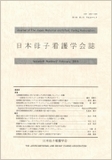Japanese
English
- 有料閲覧
- Abstract 文献概要
- 参考文献 Reference
目的
助産師の院内助産システムに対する実施意欲および実施意欲と実践能力、個人の特性との関係を明らかにする。
対象と方法
東京都内で産科、産婦人科を標榜している施設の産科、産婦人科病棟に勤務する助産師528名を対象に、個人属性、院内助産システム、実践能力に関する自作の質問紙を配布し、個別郵送回収した。
結果
院内助産システムに対する実施意欲は、7割を超えるものが「是非やりたい・やりたい」と回答した。また、院内助産システムに対する実施意欲は、助産師の実践能力の高低との関係は見られなかった。さらに、院内助産システムに対する実施意欲と個人の特性との関係では、助産師経験年数、勤務する病院の種類、助産師教育機関、分娩介助件数のうち助産師経験年数のみが関係していた。
結論
対象助産師は院内助産システムに対しては前向きにとらえていた。また、院内助産システムに対する実施意欲と実践能力との関係には有意差はなかったが、実践能力の、妊娠期・分娩期・産褥期・新生児期・その他の各期別の平均得点では、妊娠期・分娩期の平均得点が他に比べて低かった。今後、院内助産システムを推進し、助産師が役割を遂行していくうえで、助産師の妊娠期・分娩期の実践能力の強化が必要である。また、院内助産システムに対する実施意欲には助産師経験年数が関係していたことから、院内助産システムを推進していくためには助産師への年代別のアプローチが必要であることが示唆された。
Objective
This study was conducted to investigate (1) the degree of midwives' motivation for implementation of an in-hospital midwifery system and (2) correlations between the motivation and their midwifery capability and individual characteristics.
Materials and Methods
A mail-in survey was conducted on 528 midwives working in the maternity units and obstetrics/gynecology units of hospitals in Tokyo. The questionnaire worked out by the authors included questions on individual attributes, in-hospital midwifery system and midwifery capability. The completed questionnaires were retrieved by return mail from individual respondents.
Results
More than 70% of the respondents showed a positive motivation for the in-hospital midwifery system, answering "really want to implement it" or "want to implement". No significant correlation was observed between such motivation and the degree of their midwifery capability. As to the correlation between such motivation and individual characteristics, the only factor significantly correlated was "years of midwifery experience", among "years of midwifery experience", "types of hospitals for which they work", "midwifery education institutions" and "number of birth assistances"..
Conclusions
The midwives involved in this study were positive about implementation of the in-hospital midwifery system. No significant difference was observed between the motivation for implementation of the in-hospital midwifery system and their midwifery capability. As to the mean score of their midwifery capability for each of the pregnancy-, intrapartum-, puerperal- neonatal- and other periods, the mean scores of the pregnancy- and intrapartum periods were lower than that of other periods. Enhancement of midwifery capability for the pregnancy- and intrapartum periods is necessary to further promote the in-hospital midwifery system and play a pivotal role as a midwife. In addition, it was suggested necessary to take some age-based approaches to promote the in-hospital midwifery system because the factor "years of experience" was correlated with the motivation for implementation of the in-hospital midwifery system.
Copyright © 2016, The Japan Maternal and Infant Caring Association All rights reserved.


